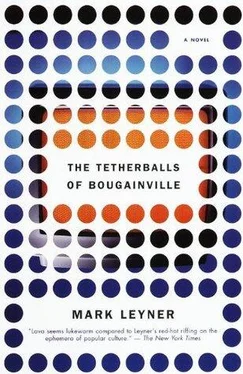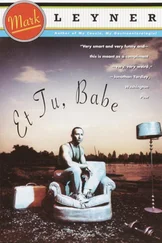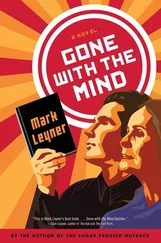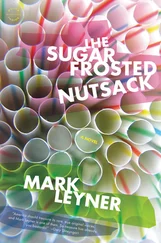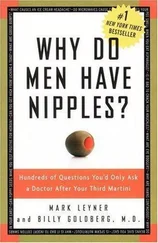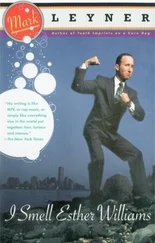So why do I do it then? Why do I sit here like this?
Because if writing this book — which, according to several people who are knowledgeable about literature, is the first tetherball novel ever— can help just one other kid who’s gone through a similar experience, i.e., having a dad who survived an attempted execution by lethal injection and is resentenced to NJSDE, and losing your virginity to a 36-year-old warden, then it will all have been worth it.
Second, some of you may find the following depiction of my sexual encounter with the warden to be too explicit or even pornographic. Before reading this section, click the Scramble icon if any of the following activities or anatomical areas are objectionable to you: (1) human genitals in a state of sexual stimulation or arousal; (2) actual or simulated acts of human masturbation, sexual intercourse, or sodomy; (3) fondling or other erotic touching of human genitals, pubic region, buttock, anus, or female breast; (4) less than completely and opaquely concealed (a) human genitals, pubic region, (b) human buttock, anus, or (c) female breast below a point immediately above the top of the areola; or (5) human male genitals in a discernibly turgid state, even if completely and opaquely concealed. By clicking the Scramble icon, your mind will supplant any of the above depictions with images of Buddhist monks paginating toilet tissue. This exclusive bowdlerizing feature is available only in The Tetherballs of Bougainville . And remember, at any point you can reread the Dawkins sentence and kill more animals. Whatever you want. It’s way interactive.
And finally, as you’ll soon see, in the midst of the tryst, I peek at my Tag Heuer and realize there’s no way I’m going to get to the Maplewood Public Library before it closes and that I’ll probably not be able to come up with a screenplay in order to win the Vincent and Lenore DiGiacomo / Oshimitsu Polymers America Award. Did I ever really expect to ensconce myself in a library carrel and produce an original screenplay in one afternoon? Actually, no. I’d always anticipated making a cursory attempt at researching “story ideas,” looking for books to “adapt,” like, y’know, Spin’s Alternative Record Guide: The Movie , and then, quickly tiring of that endeavor, simply plagiarizing an existing screenplay — something prestigious like Michelangelo Antonioni’s Red Desert or Jean-Luc Godard’s La Chinoise . Sure, in a halfhearted attempt at “originality,” I’d have tried to make some cosmetic alteration, like changing the young Parisian Maoists in La Chinoise to followers of Vellupillai Prabhakaran, the leader of the Liberation Tigers of Tamil Eelam, or to fanatical devotees of leveraged-buyout titan Henry Kravis or maybe fanatical devotees of Amy Tan or Rabbi Schneerson or Ukrainian figure skater Oksana Baiul or whatever, and then finding even this an intellectual conundrum beyond my patience and attention span, just copying Godard’s screenplay word for word, and then, after two pages, annoyed by the prospect of having to retype the whole script, finally just photocopying it and then doing a fast cut-and-paste job on the title page so it read La Chinoise by Mark Leyner , because I figured with the clout of an ICM agent, I’d still be able to win the award.
But I realize, given the time, that it’s going to be impossible to do even that — you’ll be reading all this in a couple of pages — and the warden, grabbing a handful of hair and lifting my head from her crotch, says, “I’ve got an idea, why don’t you make a screenplay out of this?”
And I look at her, or try to look at her, try to focus, squinting through this gooey scrim of secretions that covers my eyes. And I’m like: “This?”
And she says, “Yeah, this,” indicating, with a panoramic gesture, the whole drug- and alcohol-addled liaison we’re presently engaged in. And she says, “Do a screenplay that appears to be a faux autobiographical documentary, but that’s actually — here’s the irony — completely factual. Faux irony.”
My head is spinning. I’d gone from never having even seen a real live vagina one minute to being literally immersed in one the next, which is like having gone from wiggling your toes in a little backyard kiddie pool to scuba diving in the Marianas Trench without any intervening training, and on top of it all, now I’m trying to figure out “ faux irony,” which apparently is like multiplying negative numbers, which — I think — we did in Mr. Hawes’s math class. But then a little lightbulb goes on.
“It’s like plagiarizing life, sort of. Right?” I ask. “It’s, like, no work.”
“Basically,” she concurs. “As soon as you get home from here, just write down everything that happened and just put it in screenplay form. In fact, it wouldn’t hurt if you started thinking in terms of camera angles from here on,” she says, pushing my head back down.
Not only do I find transposing my experiences into camera angles simultaneous to actually having those experiences to be an extraordinarily soothing exercise in self-consciousness, but I realize that it’s a correlative to that near-death state during which your spirit hovers over your body and observes the frenzied efforts at resuscitation with this sort of dégagé bemusement, all of which further corroborates my theory of the afterlife that I first proposed in Ms. Kazanjian’s Comparative Thanotology and Eschatology class. As a final project, I built this papier-mâché diorama — well, my friend Felipe actually constructed it; it was my idea, but I seem to have this problem with deadlines— we built this papier-mâché diorama basically illustrating that in our mortal, corporeal existence we’re all sort of like actors and actresses — marionettes endowed with rudimentary attributes like sycophancy and sanctimony, but lacking the capacity for generative thought. But then at the moment we die — unless, of course, we’ve been grossly iniquitous, in which case we plummet on this gondola flume-ride, as Billy Idol sings Venetian boat songs, to some infernal grotto where we become infomercial studio audience members, rapturously applauding nose-hair clippers and sonic plaque removers for eternity — but otherwise we become screenwriters, which is why your life flashes before your eyes in the form of a storyboard. At some point thereafter, you begin your ascension of the empyreal hierarchy — you direct, you produce, you head a studio, you achieve moguldom, and ultimately you implode and, depending on how dense you are, you become either a white dwarf or a black hole. And Ms. Kazanjian said — and she said it in front of the whole class — that of all the seventh-grade final projects linking postmortem ontogeny, Entertainment Weekly , and stellar evolution, mine was one of the best she’d ever seen.
So on the way home from the prison, I stop at Nobody Beats The Wiz and buy this screenplay-formatting software program called SkriptMentor. All in all, I’d recommend SkriptMentor to aspiring screenwriters. In addition to formatting features like slug lines, scene numbers, dialogue breaks, etc., SkriptMentor also offers “idea generator and story guidance” options that include over 50,000 plot and subplot possibilities, 20,000 character combinations, and some 5,000 conflict situations. But I do have some serious reservations. I find several of the tutorial features rather intrusive and cumbersome.
For instance, whenever there’s a sex scene in your script, a dialog box is displayed on-screen reading: Penis size? You’re given several standard options: Harvey Keitel, Jeff Stryker, and Porfirio Rubirosa. There’s a 5-inch default setting. You’re also able to customize the penis size of your characters in much the same way as you adjust tabs and margins in word-processing programs, by manually dragging a size box. Some users may appreciate features that enable you to cut and paste penises from one character to another, or the Find and Replace command that allows you to change penis sizes throughout your script with a single keystroke, but I find it annoying that every time I have a male character engage in or even discuss sex, this penis-size dialogue box plops into the middle of my screen and I have to scroll through the entire Tool Palette just to choose the default setting and continue with my scene.
Читать дальше
